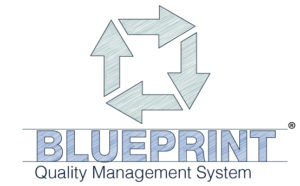1. What changes, if any, has your business experienced so far due to implementation of the Affordable Care Act (ACA)? Have clients requested anything different from you?
We have seen the increase in higher deductible health plans, but this is not based on the implementation of the ACA, but rather the offering of ala carte plans by employers in preparation of the plan and an effort by employees to reduce monthly premiums. This increase in out-of-pocket costs will likely rise, as the anticipation is that most consumers who enroll in exchanges will elect the bronze plans. Our clients are also asking what we are experiencing in other areas of the country.
2. What changes do you anticipate from a business perspective next year, as more parts of the Affordable Care Act go into effect?
Of those individuals who have enrolled to date, it is widely reported that the majority have selected the bronze plan, which has the highest deductible and coinsurance. We expect average self-pay balances to increase due to these participants electing higher deductible plans as well as the increase in employers who continue to adopt plans that shift more of the healthcare premium costs to employees as those premiums rise.
3. What are your general impressions of the Affordable Care Act implementation so far?
The glitches in the sign up portal have been unfortunate, but they also highlight the government was ill prepared for the implementation; it could also signify more problems to come.
4. Is it an issue you and your collectors follow closely?
We believe that the general population has a great deal of confusion over ACA and we have sent some of our employees through the Navigator training in various states. We are also providing companywide informational training on the Affordable Care Act so that our collectors and representatives can answer general consumer questions. We will also provide our staff with the names of resources that the consumer can contact in their specific state.
5. Medicaid expansion (specifically, which states are approving it and which states aren’t) has been a big topic. Will these decisions have an impact on the collections industry? If so, how?
It is probably too early to see any impact, however, many of the consumers that are eligible for Medicaid in those states that expanded the coverage, likely did not have the resources to pay their medical bills and any recovery would have been difficult at best. In those states not expanding coverage, some of the consumers will be eligible for subsides on the various exchanges, but again this population has been unable to pay for health care bills in the past.
6. Do you have any other thoughts on the Affordable Care Act (both in terms of what’s been implemented so far and what’s still to come) from a collections-industry perspective?
We think the misinformation about ACA has created confusion within the general population. As an industry we should be prepared to assist consumers in obtaining the right information from the right sources. As ACA International has done with Ask Doctor Debt, it may be a good investment of our dollars to have a similar site for questions related to the Affordable Care Act.
About State Collection Service, Inc.
Since 1949, State Collection Service has provided quality collection service to countless healthcare organizations.
Through experience and innovation, State Collection Service has grown to become a tremendously credible and nationally-recognized collection agency offering services from pre-registration to bad debt. It is upon the basis of ethical behavior and a dedication to integrity that each State Collection Service employee works to uphold the company’s vision – Partnerships for a Lifetime.
*This article first appeared in “A State Collection Service, Inc. Newsletter Volume 20, Issue 1, First Quarter 2014”














